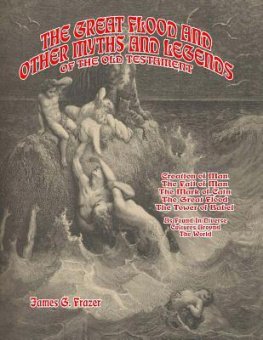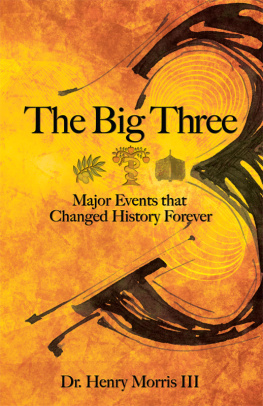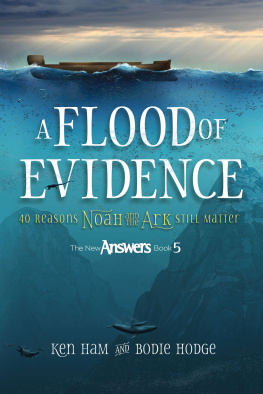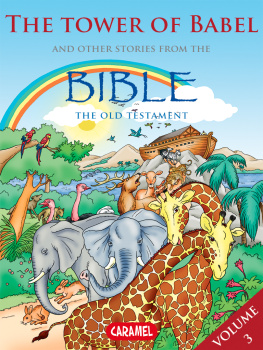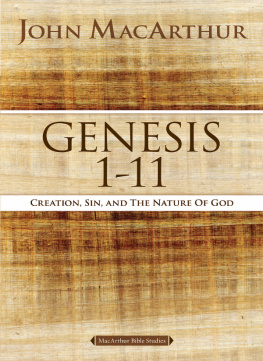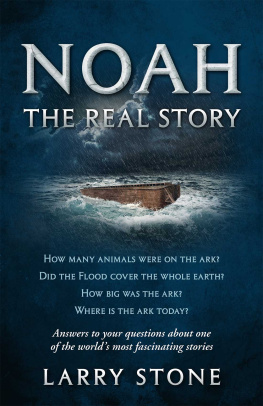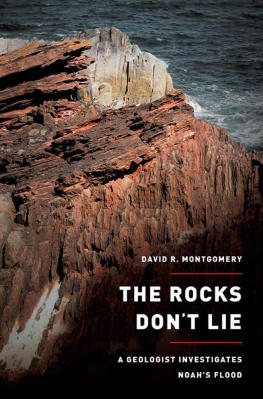The Project Gutenberg EBook of Old Testament Legends, by M. R. James
This eBook is for the use of anyone anywhere at no cost and withalmost no restrictions whatsoever. You may copy it, give it away orre-use it under the terms of the Project Gutenberg License includedwith this eBook or online at www.gutenberg.org
Title: Old Testament Legends being stories out of some of the less-known apochryphal books of the old testament
Author: M. R. James
Release Date: May 21, 2005 [EBook #15874]
Language: English
*** START OF THIS PROJECT GUTENBERG EBOOK OLD TESTAMENT LEGENDS ***
Produced by David Malcolmson
OLD TESTAMENT LEGENDS BEING STORIES OUT OF SOME OF THE LESS-KNOWN APOCRYPHAL BOOKS OF THE OLD TESTAMENT BY M. R. JAMES, LITT.D. PROVOST OF KING'S COLLEGE, CAMBRIDGE
WITH TEN ILLUSTRATIONS BY
H. J. FORD
LONGMANS, GREEN AND CO.
39 PATERNOSTER ROW, LONDON
NEW YORK, BOMBAY, AND CALCUTTA
1913
All rights reserved
PREFACE
If you read the title-page of this booka thing which young personsvery seldom doyou will see that it (the book) contains storiestaken "out of some of the less-known apocryphal books of the OldTestament." You will very possibly not understand what that means;but if you will read this prefaceanother thing which young personsdo even seldomer than they read a title-pageyou will find the bestexplanation that I can give.
I have to begin by talking about the word apocryphal. The newspapersare fond of saying that a statement made by the Prime Minister (orthe leader of the Opposition, according to which side in politics thenewspaper takes) is apocryphal. By this, the newspaper means to saythat the statement was untrue. Or, you will read that someoneobtained money or goods by saying that he possessed large estatesabroad; and that the estates turned out to be apocryphal. By this ismeant that they did not exist. But when you read of a book beingapocryphal, something rather different is meant: either that it is"spurious," i.e. that it pretends to be written by someone who didnot write it; or that what is in it is fabulous and untrue, like thestories of King Arthur; or both.
Now this word apocryphal is specially used, and perhaps most oftenused, in connection with the Bible. Probably you have at least heardof something called "the Apocrypha," even if you have not read it,and even if you have mixed it up in your mind with another word,Apocalypse, which has nothing whatever to do with it. Well, what is"the Apocrypha"? It is to be found in many Bibles, bound up betweenthe Old and the New Testaments. It is a set of books, looking justlike the other books of the Bible, with chapters and verses. Some ofit is read in church as weekday lessons in the months of October andNovember, as you may see by looking at the Table of Lessons in anyPrayer Book. Now, are all these books of "the Apocrypha" fabulous orspurious? No. Some of them are. The Second Book of Esdras (that is,Ezra) was not written by Ezra; The Book of Baruch (the companion ofthe prophet Jeremiah) was not written by Baruch; The Wisdom ofSolomon was not written by Solomon. These and some others arespurious. Also, the books of Tobit and of Judith are fabulousstories. On the other hand, the book Ecclesiasticus was reallywritten by Sirach (who is mentioned in the Preface), and The FirstBook of Maccabees is a true and valuable history.
Then why, if apocryphal means fabulous or spurious, or both, arethese books, some of which are true and genuine, lumped all togetherand called "Apocrypha"? I am sorry to disappoint you, but I cannot gothrough the whole history. It is long, it is difficult, and though itinterests me, I am inclined to think it would not interest you unlessI spread it over a great many pages, and filled it out with stories;and for this I have no time. Let me tell you what strikes me as beingthe important thing to bear in mind. Nearly all of these books havebeen at some time or another read in church and treated as Scripture.Nearly all of them are now treated as Scripture by the Roman Church,but not by most of the Protestant, or Reformed, Churches. They are onthe borderland of the Bible. From having been so long kept togetherin a group by themselves, they have come to be thought of as beingall of one uniform kind. But they are not so; they are of verydifferent sorts and merits.
Let us keep the old name for them and call them "the Apocrypha." Itwill be convenient to do so, because I have now to speak of otherapocryphal books, which have never been bound up in our Bibles, butin older times, before Bibles were printed, were (some of them atleast) read in churches and thought to be sacred books. There are agreat many of these: perhaps, if they were all put together, theywould make up a volume as large as the Old Testament itself; but atpresent there is no book in which they are all printed together. Someare stories, others are visions like those in the Revelation of St.John, others are psalms and prophecies. But all of them, I think, mayfairly be called either fabulous or spurious, or both.
I can give you an example from the Bible itself to show that therewere such books as long ago as the times of the Apostles, and thatthey were read and valued. In the 9th verse of the Epistle of Jude,you read something very curious about Satan contending with Michaelabout the body of Moses. Ancient writers whom we may trust tell usthat this is taken from a book called The Assumption of Moses (thatis, the story of Moses being taken up out of this world at the end ofhis life).
We have pieces of this book still, but we have not got the wholestory of the dispute between Satan and Michael. However, we know thatit was represented as having taken place when Michael and the otherangels were burying the body of Moses among the mountains in a placewhich was kept secret from all men, and that Satan said that thoughthe soul of Moses might belong to God, the body belonged to him; and,moreover, that Moses was a murderer, because, long before, he hadkilled an Egyptian (as we read in Exodus ii. 12); whereupon Michaelanswered Satan in the words, "The Lord rebuke thee," and Satan fled.That is one example. Another is in the 14th verse of the sameEpistle, where it is said that Enoch, the seventh from Adam,prophesied of the coming of the Lord to judge sinners. This verse istaken out of a long book of prophecies and visions called The Book ofEnoch, which still exists, and we may read the very words in it.
In this present book, I am only concerned with the apocryphalstories; with the prophecies and visions and psalms I have nothing todo. Now, how and why did the stories come to be written?
It is likely enough that after reading some history in the Bible youmay have wondered whether there was anything more to be known aboutthe people of whom it told you. You would have liked to find out whathappened to Adam, or Joseph, or David, besides the things which arewritten in the Bible. It was just so in ancient times the timeswhen our Lord was on earth, and even long before that. The Jewsnaturally thought a great deal about the people who are mentioned inthe Old Testament; and just as there are a great many stories aboutthe heroes of English historysuch as that of King Alfred and thecakeswhich, we are told now, are not true, so stories grew up aboutthe great men of the Bible. Perhaps they were invented, some of them,in answer to questions which had been asked. Some of them werecertainly made up in order to explain parts of the Bible which weredifficult to understand. I will give an example of this. In the Bookof Genesis (iv. 23, 24) you are told how the patriarch Lamech spoketo his wives and said, "I have slain a man to my wounding, and ayoung man to my hurt." Nothing is said in explanation of this; we arenot told whom Lamech had killed. So a story was made upno one knowswhenwhich gives this explanation: Lamech was blind, and he used toamuse himself by shooting birds and beasts with bow and arrow. Whenhe went out shooting, he used to take with him his young nephewTubal; and Tubal used to spy the game for him and guide his handsthat he might aim his arrow right. One day, when they were outtogether, Tubal saw, as he thought, a beast moving in the thicket;and he told Lamech, and made him aim at it, and Lamech's arrow smotethe beast and killed it. But when Tubal ran to see what kind of beastit was, he found that it was not a wild beast at all. It was hisancestor Cain. For after Cain had killed Abel, and God had pronounceda curse upon him, he wandered about the earth, never able to remainin one place; and a great horn grew out of his head, and his body wascovered with hair; so that Tubal, seeing him in the distance amongthe trunks of the trees and the brushwood, was deceived, and mistookhim for a beast of chase. But when Tubal saw what had happened, hewas terrified, and ran back to Lamech, crying out, "You have slainour forefather Cain!" And Lamech also was struck with horror, andraised his hands and smote them together with a mighty blow. And inso doing he struck the head of Tubal with his full strength, andTubal fell down dead. Then Lamech returned to his house, and spoke tohis wives the words that are written in the Book of Genesis. Thisstory, a very ancient one, as I said, was invented by the Jews toexplain the difficult passage in Genesis; and the early Christianwriters learnt it from the Jews, and it passed into many commentarieswhich were written in later times; so that you may still seerepresentations of it carved in stone in churches, both in Englandand elsewhere. In England it may be seen on the inside of the stoneroof of Norwich Cathedral, and on the west front of Wells Cathedral;but you have to look carefully before you can find it.
Next page
